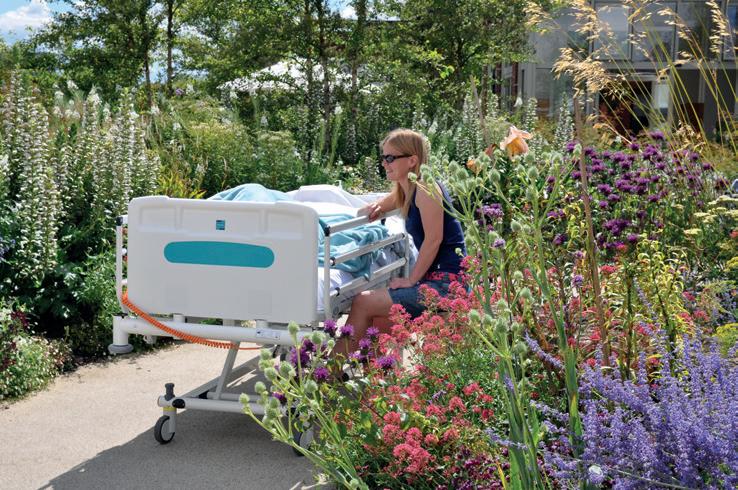
7 minute read
Horatio’s Garden
OF FEATURE
Horatio’s Garden is tale of triumph over adversity
Advertisement
An unspeakable tragedy tore the heart out of Olivia Chapple and her family nearly a decade ago, but in that time the family has channelled their grief and heartache into the launch and development of an amazing charity. Imogen Gander finds out more
Horatio Chapple
Horatio Chapple was dragged from his tent and killed by a polar bear while on an expedition in 2011. Horatio, aged just 17, was the eldest son of OF Dr Olivia Chapple (m81-83) and was on a science expedition in Svalbard, Norway with the British Schools Exploring Society. Acting true to his character and with unfaltering courage he lost his life while biding time for his friends to escape. So much potential was lost in that moment and the family was dealt a vicious blow that many families wouldn’t recover from. Yet the Chapple family has turned the unspeakable in to good, starting a charity in the name of Horatio that continues to flourish. Horatio’s Garden creates specially designed gardens in spinal trauma rehabilitation centres across the country, and since her son’s death, Olivia Chapple has worked as a full-time volunteer, leading the charity in just eight years from its local roots into a full blown UK wide organisation. She said the charity is making a real difference to the the lives of young people facing life changing injuries and long stays in hospital. “Spinal cord injury is devastating, not only for the patient but their family – hopes and dreams are shattered and everyone has to come to terms with a new future. Its hard to do this in a busy hospital ward – the gardens bring a sanctuary for reflection, contemplation, laughter and tears. They are vital to rehabilitation.” It was Horatio’s observation, while volunteering with spinal injury patients near
© OLIVIA CHAPPLE

their home in Salisbury, that patients with spinal injuries often couldn’t go outside. Horatio initially conducted surveys with patients and their carers, which led to the ideas that developed into Horatio’s Garden. Describing Horatio’s passion for helping others, Chapple remarks that he showed just how much of an impact volunteering as a young person can have. “He demonstrated the value of a new perspective and constant questioning.” After creating its first garden in Salisbury, the charity has now been able to bring Horatio’s Gardens to five out of the 11 spinal injury centres in the UK, with plans to expand even further. The gardens themselves are large ongoing projects, requiring the cooperation of many organisations and individuals and are often designed by world-leading garden designers. “Each garden takes about three years to build and we make sure to plan them thoroughly with excellent designers.” The gardens are perfect for spinal patients and can be accessed by wheelchair or hospital bed, with space for family members or carers to participate in events and activities with patients. Chapple describes the summer internship programme that the charity runs each year with Oxford University interns who interview patients, staff and visitors. The ensuing report demonstrates not only the staggering impact of the gardens – between 90% and 100% of respondents report improved mental health and engagement with physical rehabilitation. It also suggests possible modifications that can be incorporated into the next gardens. “We learnt that tea and cake are always needed, so we added an accessible kitchen area to each garden,” laughs Chapple. She adds that there are many more garden rooms and pods to allow the spaces to be usable all year round. Not only do Horatio’s Gardens allow for socialising with family and friends, but sessions such as garden therapy and wheelchair skills are used to help patients recover, whilst music and craft sessions help social cohesion, something that is so important for patients with long-term injuries. Chapple stresses how important all of these aspects of the gardens are, reminding us that recent lockdowns in the UK have shown just how important access to the outside is for mental wellbeing, not only for patients but hospital staff as well. The charity commits to maintaining each garden once it is open and employs professional staff in each project who work in collaboration with the hospital staff and lead a committed team of volunteers. Fundraising is vital to cover the running costs of each project and the charity is seeking people who may like to become Friends of their local garden. Chapple says: “Becoming a Friend of Horatio’s Garden and donating a small amount each month helps us make a huge difference to the lives of patients every day.”

There is a bigger picture, she adds. “We want to be part of the dialogue for change. The tide is turning as people realise what a real difference gardens and green spaces make to all of our physical and mental health.” She wants to encourage designers of new buildings to consider how green spaces can be incorporated. The charity has been so successful that it is constantly approached by projects both in the UK and abroad that want to learn from its example and introduce the benefits of gardening on mental health to patients. “If anything, Covid-19 has magnified interest in Horatio’s Garden as wellbeing has become even more of a hot topic that fascinates people. It’s amazing to be part of this change and to empower others to do the same.” Undoubtedly, it is Chapple and her family’s personal strength to build such a wonderful initiative out of a dreadful tragedy that makes this such an inspirational story. “We started the charity as a legacy to Horatio and it has taken on its own amazing momentum with terrific drive and energy,” she says. Speaking of the healing process after her son’s tragic death, Chapple remarks on how wonderful it has been to do things with a purpose that Horatio would have been pleased about, and to make a difference on his behalf. “His life is changing others’ lives everyday, and our other sons are involved, as are many of Horatio’s friends too giving them a focus and a way to keep his memory alive.” © RUSSELL SACH
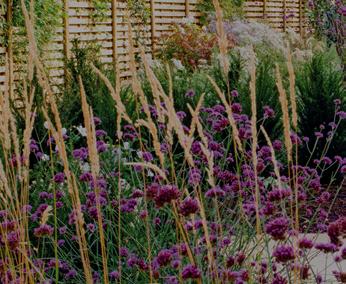

Like any charity, Chapple and the Horatio’s Garden team eagerly welcome volunteers wishing to get involved with projects, whether by giving their time or by undertaking a fundraising challenge, and would especially love OFs to join the cause. Horatio’s Garden has touched the hearts and lives of so many people so far and in recognition received the royal patronage of Princess Eugenie of York in 2019. The charity’s vision is to have a Horatio’s Garden in all 11 NHS spinal injury centres in the UK. In September this year the charity’s fifth garden opened in London and the South East designed by eight times Chelsea gold medal winner Tom Stuart-Smith. Chapple may have been the driving force of the charity but the family has strong links with the spinal injury community. Her husband David is a spinal surgeon. The couple met at St Thomas’s while she was pursuing a medical degree and married in 1991 before having three children, Horatio, Titus and Magnus. While at Felsted, Chapple also became friendly with Andrew Widdowson, who joined the school as a maths teacher having spent many months in Stoke Mandeville hospital after
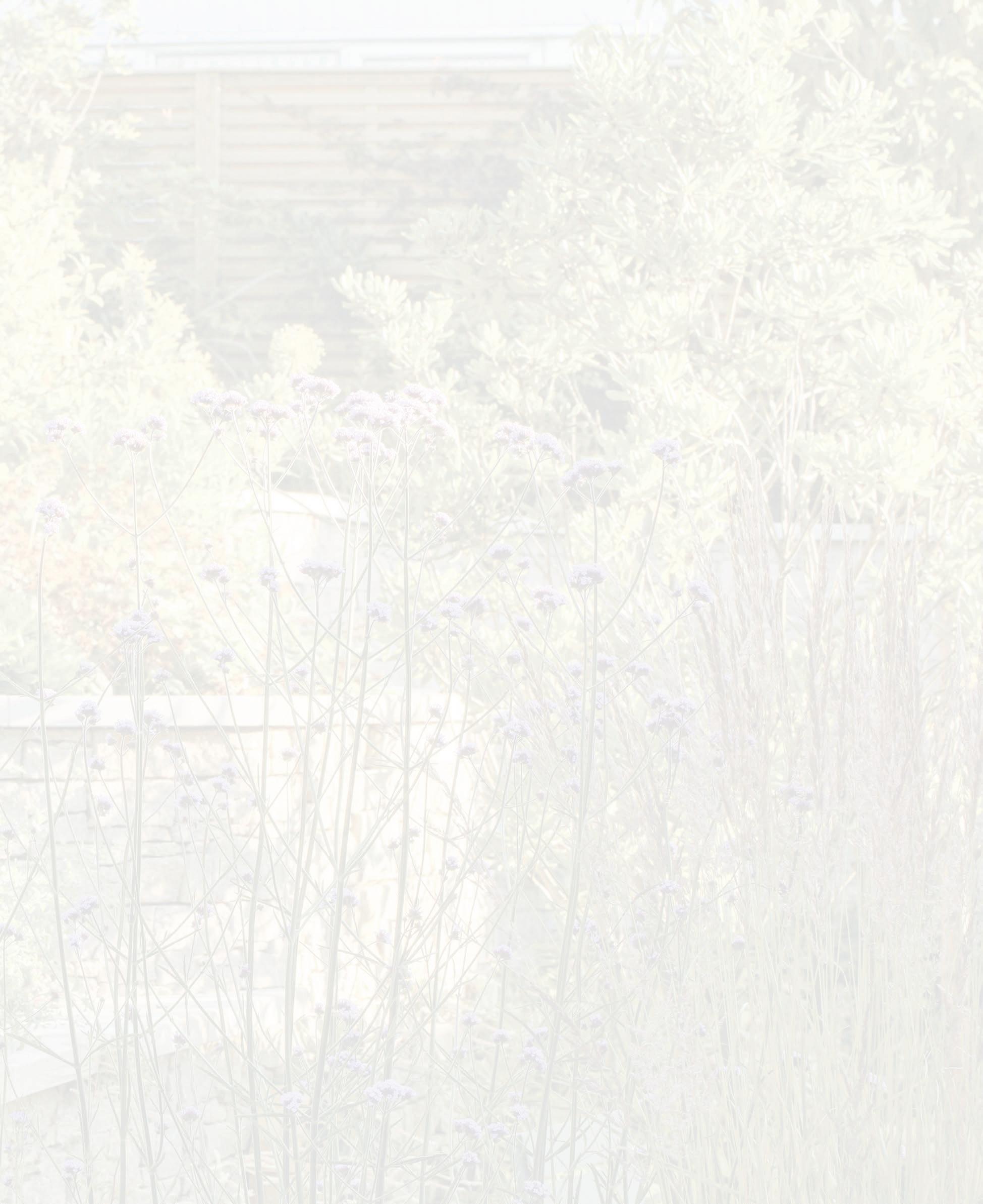
sustaining a spinal cord injury playing rugby at Oxford. Encouraged by the Headmaster Tony Eggleston, Chapple sought to help Widdowson settle into life at Felsted as a wheelchair user, and the two have remained friends since. Widdowson has now taken up a position as a charity ambassador, aiming to promote the initiative in his local area. The success of Horatio’s Garden is a marvellous, heartwarming story that shows the tremendous courage and virtue of the Chapple family in overcoming the tragic loss of their son Horatio. It also demonstrates the importance of green spaces and gardens in helping our mental health and wellbeing, something we have increasingly become aware during the coronavirus pandemic. horatiosgarden.org.uk

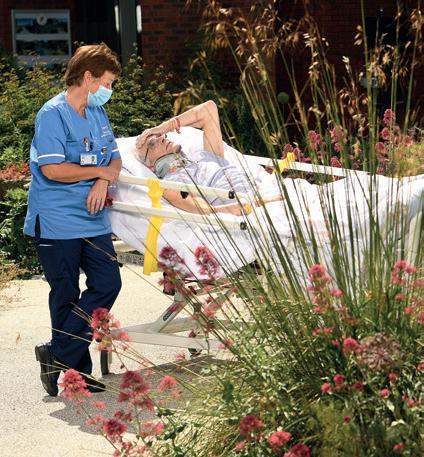
© CRAIG COLVILLE

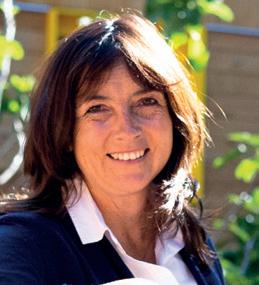
Left: Dr Olivia Chapple Above: Andrew Widdowson
